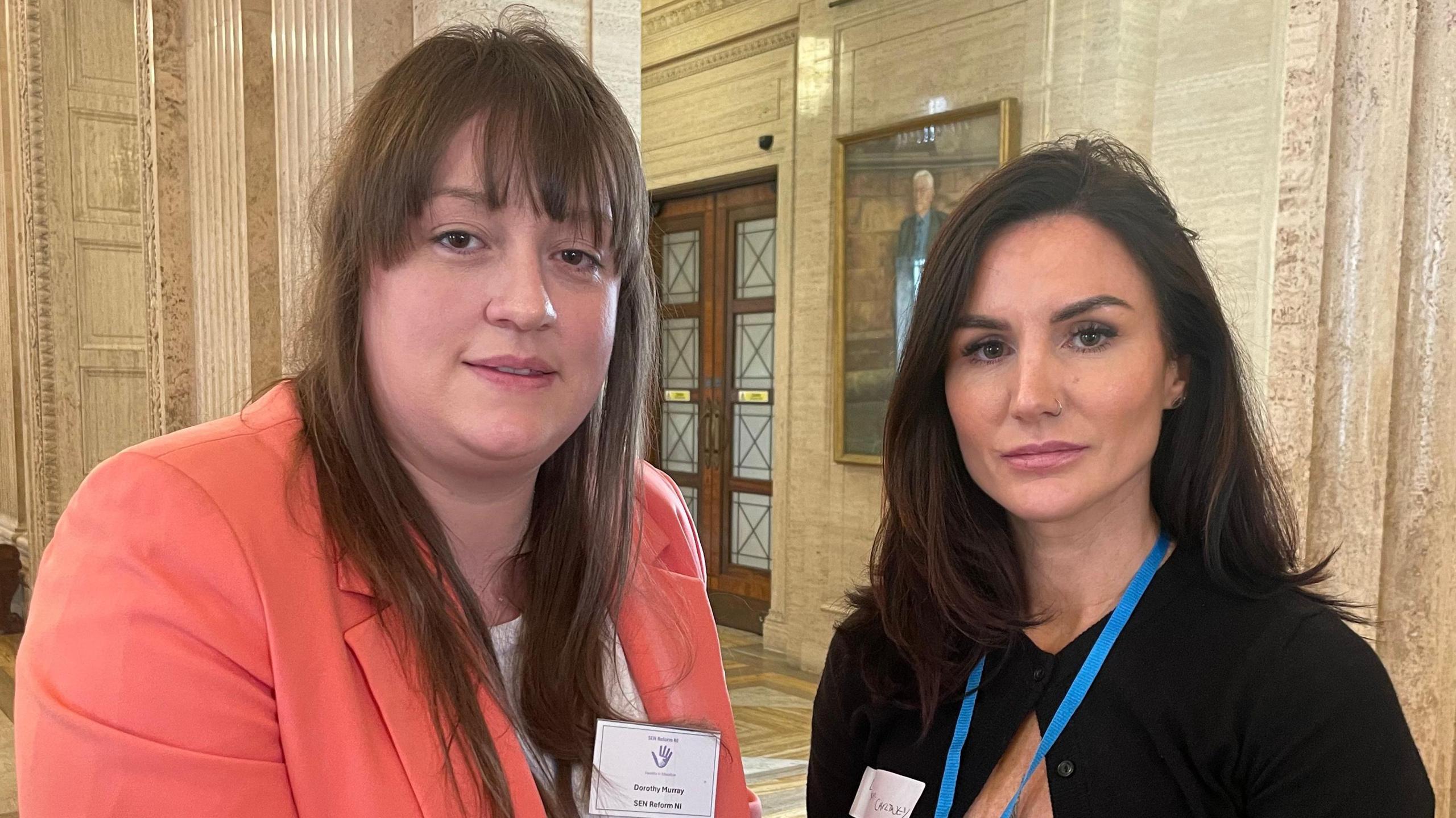‘Once my autistic son turns 18, his support ends’
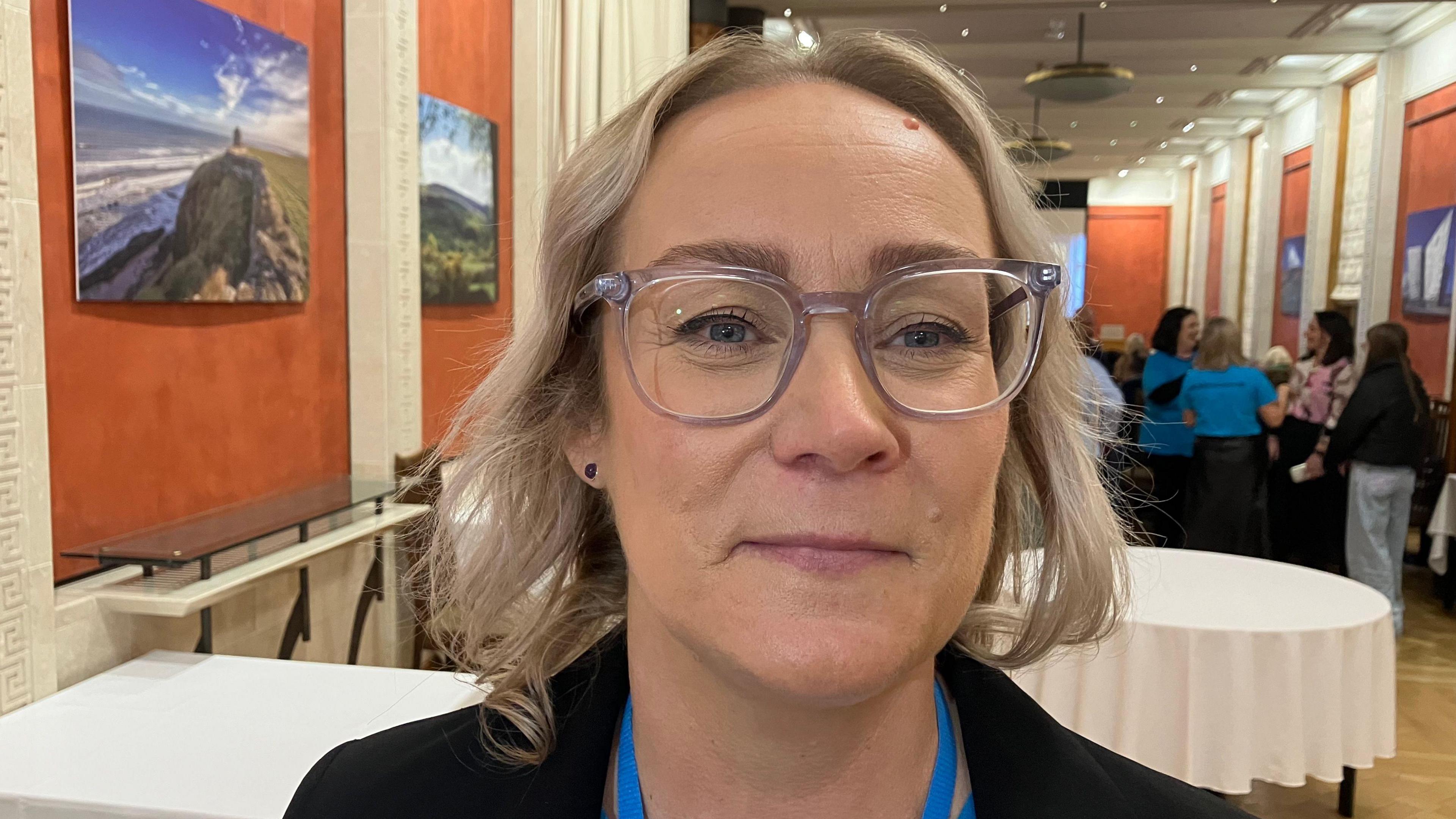
Caroline Campbell was among parents who hosted the event at Stormont
- Published
"He would go from having five days a week in school in a supported environment with his peers to basically having nothing and being at home with me."
Caroline Campbell's autistic 17-year-old son Oscar is due to leave his special school in two years.
She travelled from Londonderry to Stormont on Monday to tell assembly members (MLAs) and others about the "cliff-edge" he faces.
That is because Oscar will not receive automatic support to continue in education or training when he leaves school.
"Because there's no legislation, which is what we're all here fighting for, he's not protected once he's 19," Ms Campbell told BBC News NI.
"Once that statement of special educational needs runs out at 19, that's it, he has no protection legally."
Economy Minister Conor Murphy acknowledged that young people like Oscar with special educational needs (SEN) face "injustice" when they leave school.
Murphy was speaking at an event at Stormont organised by parents of children with SEN.
"We have a responsibility not just in my department, but across departments, to address that."
The minister said there needed to be continued provision for young people.
"We can't just say, 'we're done with you, the education and training system is done with you at 19 because you have learning or other disabilities.'"
First Minister Michelle O'Neill, Deputy First Minister Emma Little-Pengelly, Health Minister Mike Nesbitt, Education Minister Paul Givan and a range of assembly members also attended the event at Stormont to meet parents.
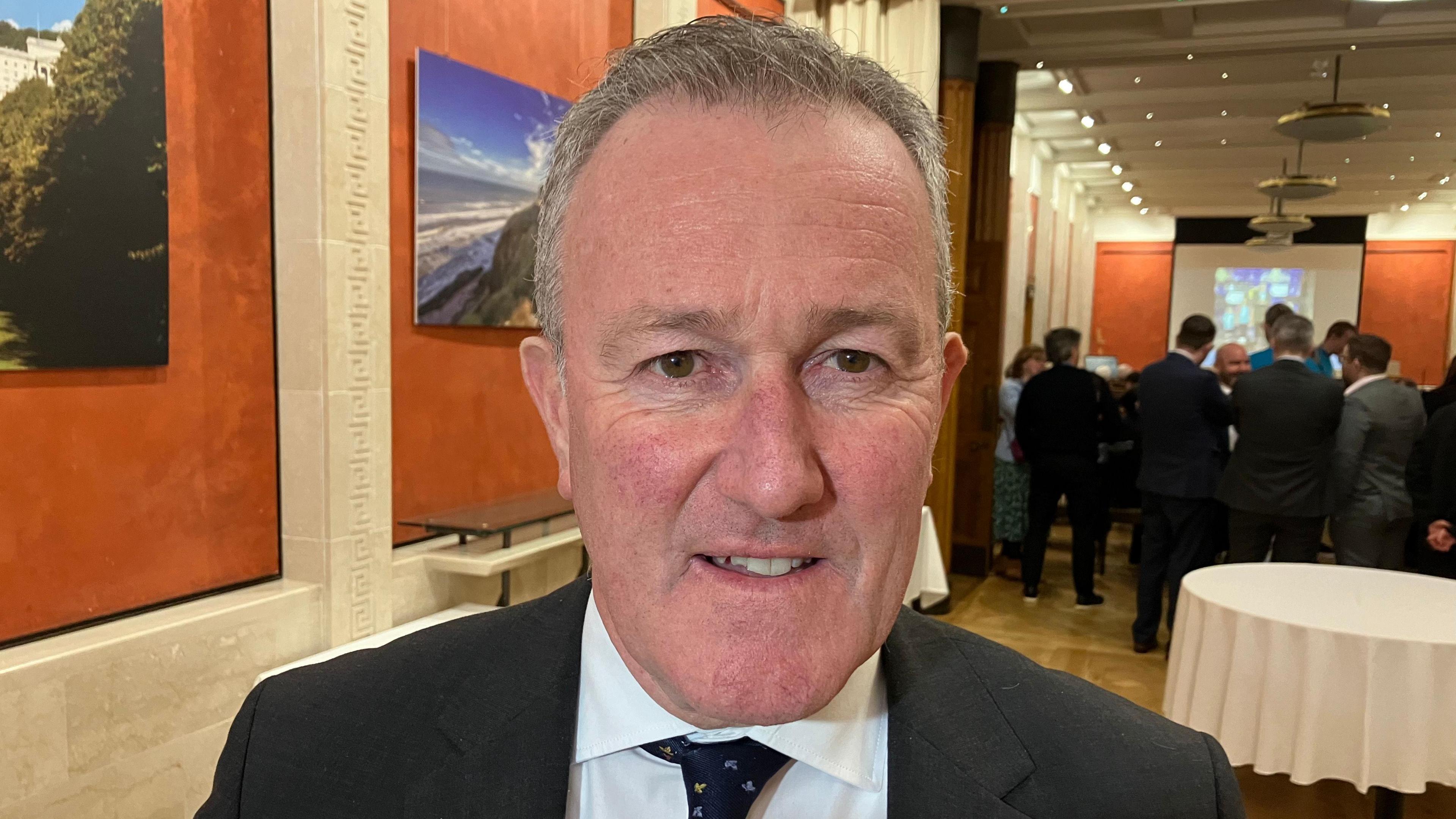
Economy Minister Conor Murphy said politicians need to do more to address post-19 SEN education
What is in place elsewhere?
In England, an Education, Health and Care plan (EHCP) outlines a young person's special educational needs up to the age of 25.
It is a legal document, which also describes the additional support they need in education or training, and the outcomes they would like to achieve.
But an EHCP is only in place for young people in England, though there has been criticism that some councils fail to meet deadlines set out in the plan.
In Wales and Scotland, though, there have been recent reforms to help young people with SEN transition from school.

Deputy First Minister Emma Little-Pengelly also attended the Stormont event
In Northern Ireland, by contrast, a child can receive a statement of SEN, which is a legal document setting out the support they should receive in school.
But a statement - and the support it mandates - ends when a child leaves school, rather than being in place up to the age of 25.
That has led some special school principals in Northern Ireland to say that their pupils face a "cliff edge" when they leave school.
Some organisations offer training and support to young adults with SEN to allow them to start a career.
But sometimes there are not enough places on specialist courses in further education to meet demand.
'Thrives on routine'
Parents came to Stormont to call for a change in the law to ensure support for further education, training and employment is in place for all young people with SEN when they leave school.
Jaclyn Harron's daughter Aoife is nine and attends Knockavoe Special School in Strabane, County Tyrone - she is autistic and also has severe intellectual development disorder.
"Aoife has a dual diagnosis, which means she's never really going to be independent," she told BBC News NI.
"Aoife just thrives on her routine, she loves her school.
"My biggest fear is that when that comes to an end at 19 there is going to be nowhere for Aoife to go."
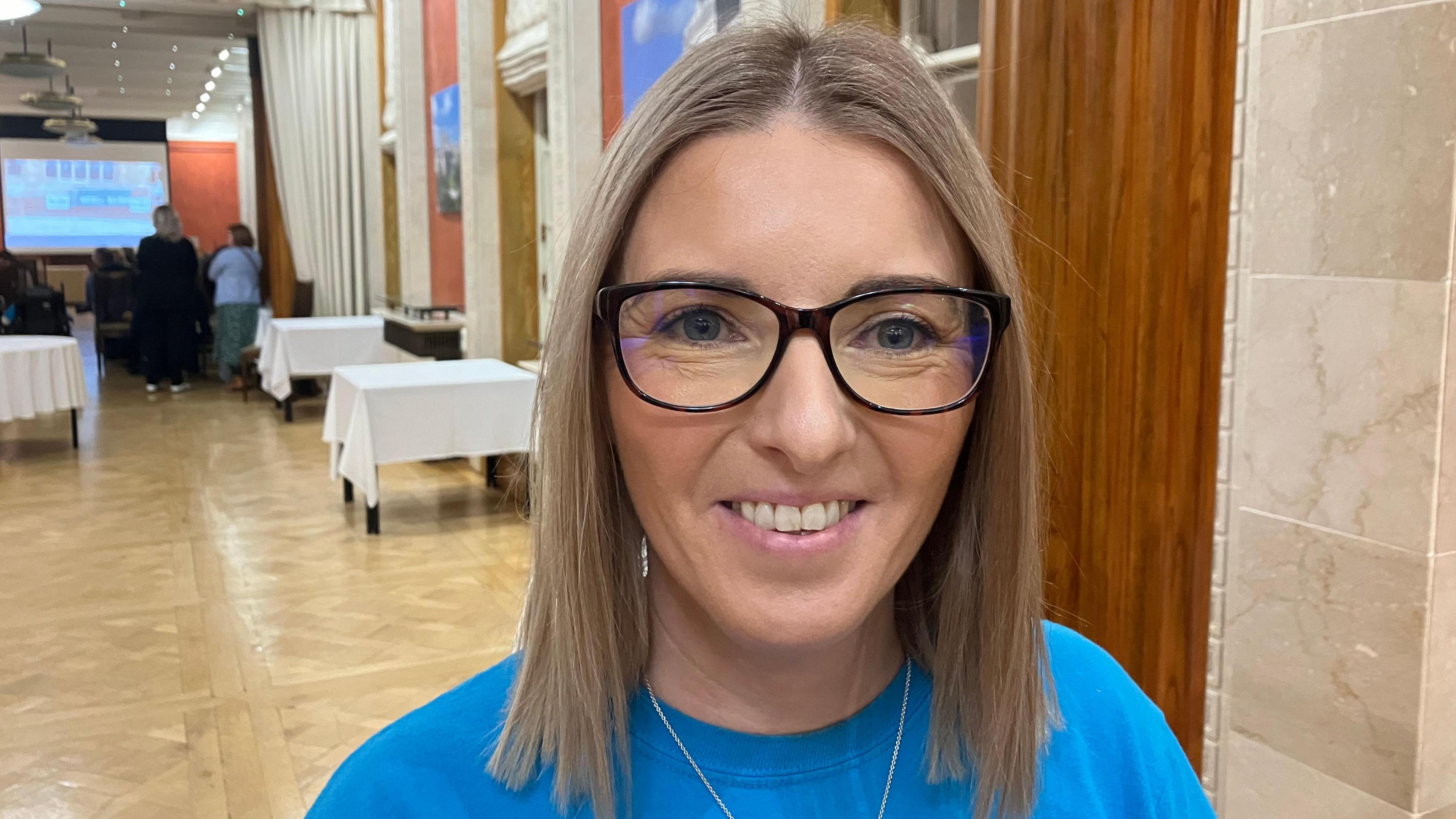
Jaclyn Harron's nine-year-old daughter Aoife attends a special school in County Tyrone
She said not knowing what would happen to Aoife when she reaches 19 was a "really scary thought".
Ms Harron said she had friends whose children were about to leave school with special educational needs "and there isn't anything in place".
Alma White is one of the parents who have been highlighting the need for a change in the law.
She has called the campaign Caleb's Cause, after her son Caleb who has complex special needs, including autism, ADHD and Obsessive Compulsive Disorder (OCD).
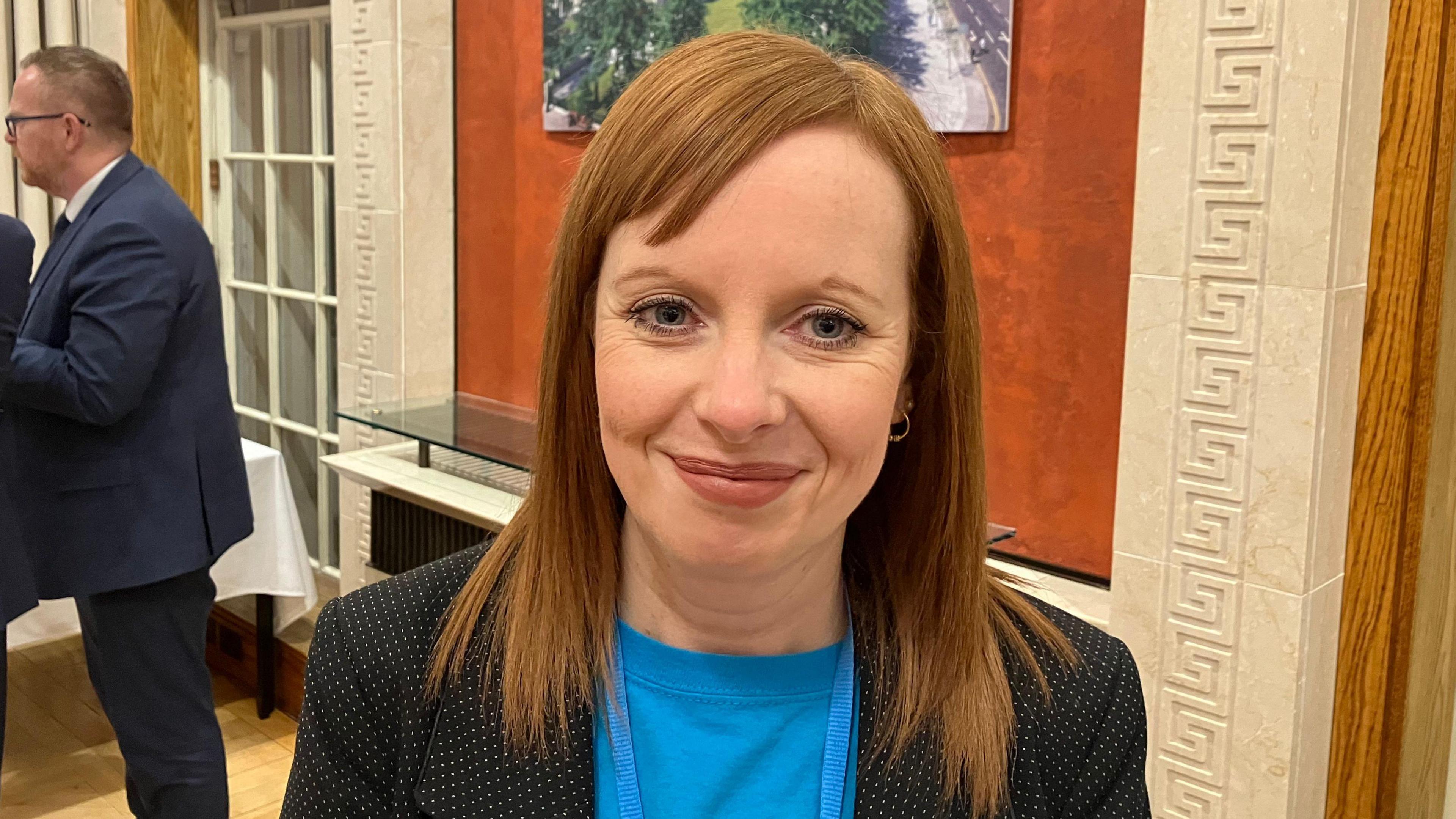
Alma White has been has critical about the lack of support SEN children receive after they leave school
Ms White said a task force had been set up in the Department for the Economy (DfE) to look at options for change.
"So we're just kind of waiting to see, but obviously I'm pushing for it in this mandate," she said.
"Actions are going to speak louder than words.
"What I would like to see is a public declaration of support and I would like to see it move forward."
Multiple reviews
It is not a problem that MLAs or executive departments have been unaware of.
Stormont's own research department has identified "multiple reviews" carried out over the past 20 years into the transition of young people with SEN from school.
"Transition planning has been subject to considerable review and recommendation over the last two decades," its most recent study said.
But despite this "issues persist", it continued.
The research said that transitions from school were "a long-standing policy challenge, compounded by growth in the population and complexity of need of children with disabilities".
A recent review into Northern Ireland's entire education system noted that "many learners with special needs face particular difficulties at the point of leaving school and embarking upon adult life".
- Published25 April 2024
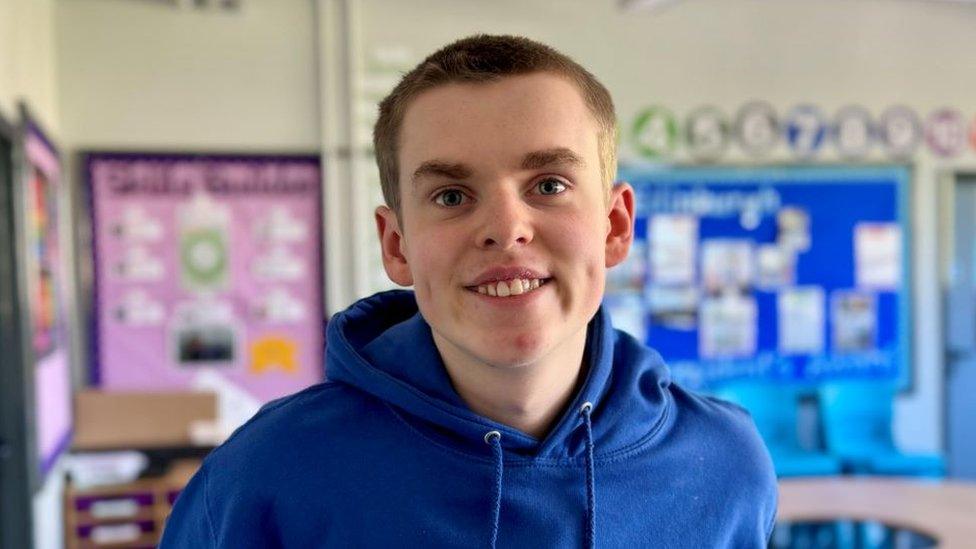
- Published19 June 2024

- Published17 June 2024
